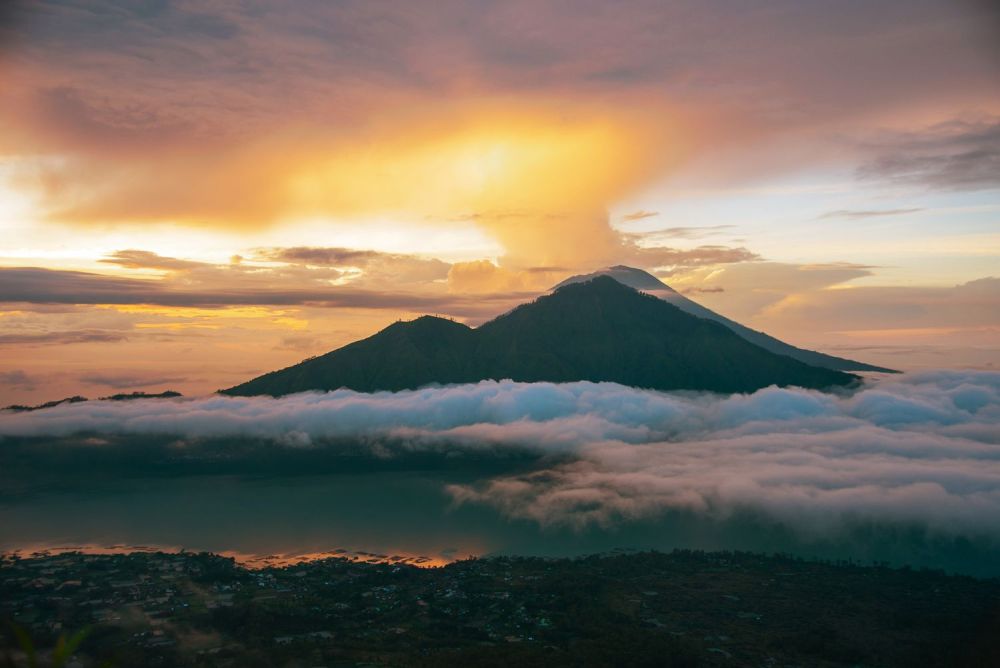

Mount Batur, an active volcano located in the Kintamani District of Bali, Indonesia, has been a significant spiritual site for the locals for centuries. However, it wasn't until the early 20th century that Mount Batur began to attract the attention of international visitors. The allure of its stunning caldera lake and the opportunity to witness the sacred rituals of the Balinese people began to draw adventurous tourists to the region.
In the 1970s and 1980s, Bali's burgeoning reputation as a destination for natural beauty and unique culture led to a surge in tourism across the island. Mount Batur became a focal point for adventure tourists seeking to climb its slopes and enjoy the breathtaking views at sunrise. This trend continued to grow, further establishing Mount Batur as a must-visit location for hikers and nature enthusiasts.
To accommodate the increase in visitors, the local government and private investors began to develop the surrounding infrastructure. This included the construction of better roads, guesthouses, and restaurants, making it easier and more comfortable for tourists to visit the volcano. By the 1990s, Mount Batur was not only a hub for trekkers but also for those interested in the geothermal energy produced by the volcano, which is harnessed at a local power plant.
Mount Batur's significance in Balinese culture, particularly its association with the mother temple of Besakih, has made it an integral part of cultural tours on the island. Visitors often combine their trekking experience with visits to nearby temples and cultural sites, gaining a deeper appreciation for the island's traditions and history.
In recent years, sustainable and eco-tourism have become increasingly important. Efforts are being made to ensure that tourism around Mount Batur respects the natural environment and supports local communities. Adventure tourism continues to thrive, with sunrise treks, mountain biking, and paragliding being popular activities. Moreover, wellness tourism has also taken root, with visitors engaging in yoga retreats and holistic experiences in the serene setting of Mount Batur.
While Mount Batur continues to draw international tourists, it faces challenges such as environmental degradation and overtourism. In response, there is a growing emphasis on responsible travel practices and the promotion of off-peak visits. The local authorities have also taken measures to manage the flow of tourists to minimize impact and improve the overall visitor experience.
Today, Mount Batur stands as a testament to Bali's sustained appeal as a unique travel destination that offers a combination of natural beauty, adventure, and cultural richness. Its evolution from a revered local landmark to a celebrated international tourist attraction continues to shape the region's economy and contribute to the global recognition of Bali as the Island of the Gods.